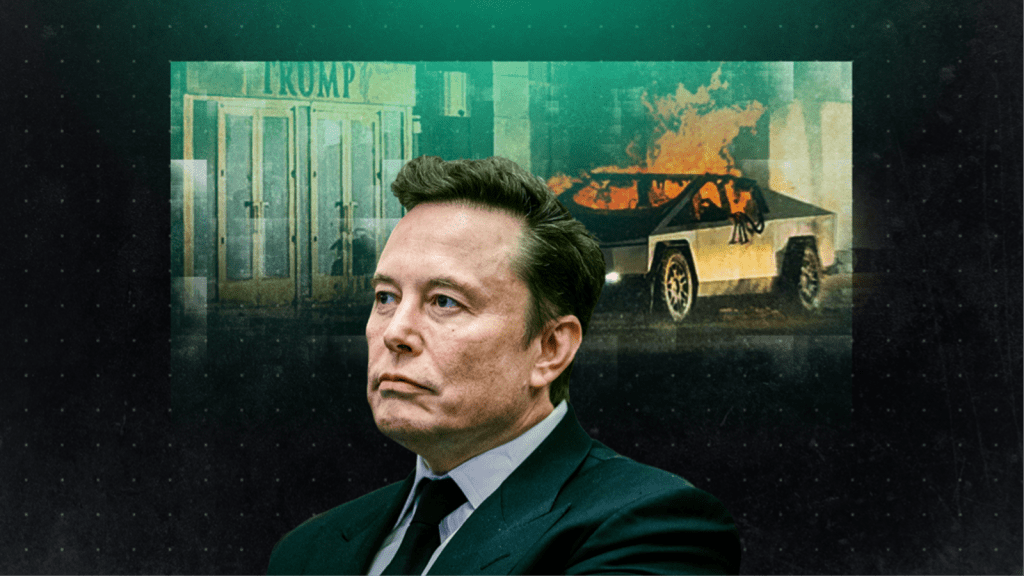Cliff Notes
- Increased competition and the withdrawal of subsidies have led some investors, including Gerber Kawasaki’s Peter Gerber, to reduce their Tesla holdings.
- Despite the company’s recent share price dip, some investors, like analyst Dan Ives, maintain that Tesla’s future relies on its innovative potential in AI and self-driving technology.
- Gerber expresses concern that Elon Musk’s political involvement has negatively impacted Tesla’s brand perception and the rising backlash against the company.
The huge financial impact of Elon Musk’s row with Donald Trump | US News
The combination of increased competition, the withdrawal of subsidies, and hostility from the president and potential customers has caused some investors to call time on Tesla.
Despite being an early supporter, Mr Gerber, president of Gerber Kawasaki Wealth and Investment Management, has been reducing his firm’s holdings in recent months.
Mr Musk poses during a television interview after his company’s initial public offering at the NASDAQ market in New York on 29 June 2010. Pic: Reuters
Mr Musk poses during a television interview after his company’s initial public offering at the NASDAQ market in New York on 29 June 2010. Pic: Reuters
“We’ve had to sell more Tesla stock and we’re going to continue to sell more,” he said. “The stock’s wildly overvalued and, still just on a business level, has lots of issues.”
“It’s the biggest disruptive technology company in the world, along with Nvidia.”
Tesla’s valuation nosedived in the first few months of 2025 after Mr Musk joined Mr Trump’s administration. By mid-March, its market value had essentially halved.
Although the stock has rallied slightly since Mr Musk first suggested he would exit the government, the share price is two-thirds of its December peak.
Some investor are more positive
Other investors are far more positive, arguing that Tesla’s worth should be judged not just on sales and productivity, but the value of Mr Musk’s talent for innovation, particularly in the potential of AI and self-driving technology that he considers the next frontier for the automotive industry.
Tesla trialled its self-driving RoboTaxi in Austin, Texas, with mixed results in June. Several incidents triggered an investigation by the US road safety agency, but many investors are undeterred.
A driverless Tesla moves through traffic during the company’s Robotaxi launch event in Texas. Pic: AP
A driverless Tesla moves through traffic during the company’s Robotaxi launch event in Texas. Pic: AP
Dan Ives, senior analyst at prominent wealth management firm Wedbush Securities, is a long-term advocate whose view has not been changed by recent events.
“The Trump feud is not getting in the way of this in our view. We believe Tesla remains the most undervalued AI play in the market today,” Mr Ives wrote in a recent report with fellow Wedbush analyst Sam Brandeis.
Mr Ives acknowledged in an interview with Sky News that state and federal tax breaks are “the roots of Tesla” without which the company would not be where it is today. But he said the larger part of its success is “innovation in everything they built”.
“It’s the biggest disruptive technology company in the world, along with Nvidia,” he said.
Mr Gerber remains unconvinced and fears Mr Musk’s pivot to politics has irreparably damaged the brand he built.
While he can offload the stock, he has struggled to find a buyer for the Cybertruck he bought just last year.
“I actually really like it,” Mr Gerber said. “That said, I don’t like the way it makes me feel when I drive it because people hate Tesla so much.”


